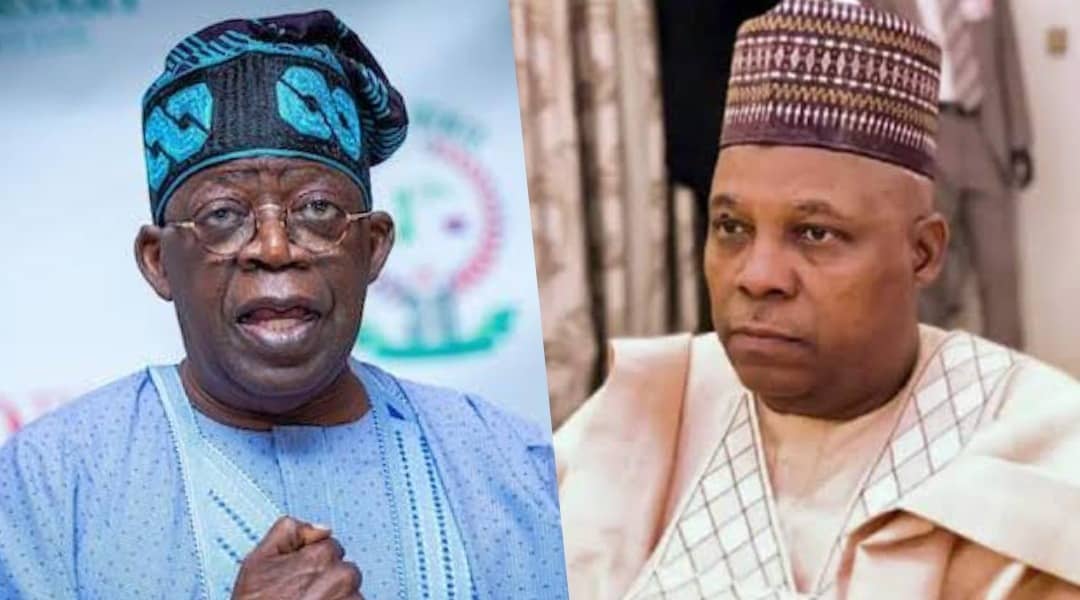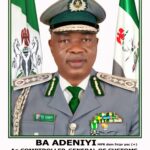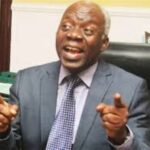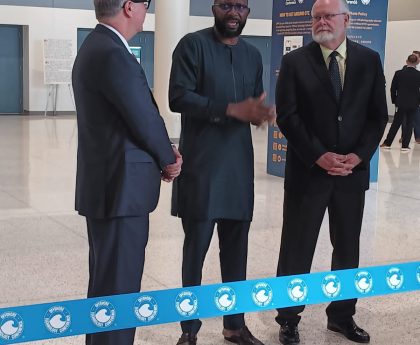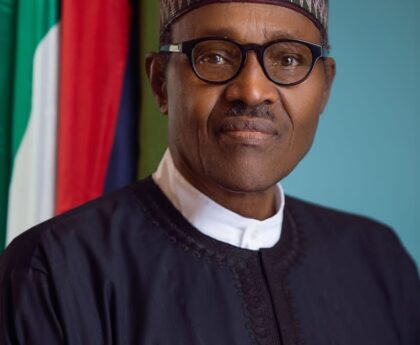President Bola Tinubu and Vice-President Kashim Shettima on Wednesday met with the Senate President, Godswill Akpabio, along with some state governors at the Presidential Villa, Abuja, over the state of the economy.
Since Tinubu announced the removal of petrol subsidy by the government on May 29, petrol price has continued to rise, hitting over N600/litre on Tuesday from N186/litre.
This has led to an astronomical increase in transport fares, cost of essential goods and other services.
The promised salary increase and palliative package meant to cushion the effect had not materialised.
Also at the Wednesday closed door meeting with the President were Kwara State governor and Chairman of the Nigeria governors forum, AbdulRahman AbdulRazaq; Chairman of the Progressive Governors’ Forum (PGF) and Imo State governor, Hope Uzodinma; Lagos State governor, Babajide Sanwo-Olu; his Ogun State colleague, Dapo Abiodun, as well as the former governor of Kano State, Abdullahi Ganduje.
Presidential Adviser on special duties, communications and strategy, Dele Alake said the meeting looked at how to finalize arrangement on the distribution of palliatives to cushion the effects of the fuel subsidy removal.
The presidency had earlier proposed the distribution of grains and fertilizers to farmers also as part of measures to boost food security in the country.
After 50 days in office, President Bola Tinubu sent the list of his ministerial nominees to the Senate, and to be read out today by the President of the Senate, Godswill Akpabio
The Guardian gathered that the Clerk of the National Assembly, Magaji Tambuwal, received the letter containing the list yesterday.
As mandated by law, the President is obligated to submit the list of ministerial nominees within 60 days of assuming office. After Tinubu’s inauguration on May 29, he has until July 26 to fulfil this requirement.
According to insider sources at the Presidency, the ministerial list had been prepared well in advance, but recent adjustments have been made to ensure its utmost effectiveness.
“The list of ministerial nominees has been ready since, but the President had to make some changes in some states,” a reliable source disclosed.
Nigerians have been eagerly awaiting the unveiling of the ministerial list, leading to the circulation of various speculative lists in recent weeks. Nonetheless, President Tinubu has skillfully guarded his choices, leaving the public in suspense as to who will ultimately secure portfolios in the final list of cabinet members.
The ministerial list is widely anticipated by Nigerians as one that will further show the policy direction of the Tinubu administration in addressing the myriad of challenges facing Africa’s largest economy.
Tinubu’s letter further reduces the anxiety and suspense surrounding his ministerial nomination list. Although no official statement or information has emanated from the Senate to this effect, credible sources close to the office of the Senate President disclosed that the list has reached the Senate.
When asked to reveal the nominees, the source simply said: “What I can tell you is that the list is here now. On the content of the envelope, only the Senate President can open it, and as such, I can’t speculate about the nominees.”
A ranking senator who was reached to confirm the story, however, said he had no knowledge of the development.
“Why are you in a hurry? If the list is here (in the Senate), the Senate President will read it out tomorrow. If not, all of us will keep waiting for it.”
But when reminded that the President has less than 10 days to transmit the list of nominees, he said: “I can tell you that before this Thursday, the nominees will be made known to Nigerians”
One of the expected outcomes of the list that has been talked about by many political pundits and public affairs commentators is the inclusion of some opposition party members. It is no longer news that some opposition members were instrumental to the victory of Tinubu at the presidential polls.
The Peoples Democratic Party (PDP) G-5 governors, led by ex-governor of Rivers State, Nyesom Wike, were instrumental in inflicting calculable damage to the fortunes of their party and their presidential candidate, Atiku Abubakar Other members of the G-5 governors include: Okezie Ikpeazu (Abia), Ifeanyi Ugwuanyi (Enugu), Samuel Ortom (Benue), and Seyi Makinde (Oyo).
Similarly, the New Nigeria Peoples Party (NNPP) presidential candidate, Senator Rabiu Kwankwaso, is also highly tipped for a place in Tinubu’s cabinet.
The presidential spokesman, Dele Alake, recently said that it is only President Tinubu that could decide when to submit the list of the nominees to the National Assembly, as well as those to make the list. Alake assured that the list would be made public before the expiration of the 60 days.
According to sources familiar with the President’s thinking, he plans to form a government of national interests across party lines by giving appointments to members of opposition parties with his eyes already on the 2027 general elections.
With these calculations, coupled with the need for further consultations with key stakeholders within and outside his party, the All Progressives Congress (APC) has been forcing the President back to his drawing board to constantly tweak portfolios to assign to states and who to appoint to effectively man the post.
According to another source, the first batch of nominees to the Senate is ready for confirmation just to beat the July 26 constitutional deadline. “He will subsequently forward more names to the Senate for confirmation after the deadline.”
Prominent among the states giving President Tinubu dilemma is Kano State. After weeks of consultations and political engineering, it has emerged that political arch-rivals and former governors of the state, Kwankwaso of NNPP and his successor, Abdulahi Ganduje of the APC, will be nominees representing both Kano and the Northwest zone in the cabinet.
The All Progressives Congress (APC) has dismissed report of an alleged telephone conversation between the Chief Justice of Nigeria (CJN), Olukayode Ariwoola and President Bola Tinubu over the outcome of the presidential election petition currently before the court.
This is contained in a statement issued by Mr Felix Morka, the APC National Publicity Secretary in Abuja.
The party described the speculations as mischievous, adding that the Presidential Election Petition Court (PEPC) should be allowed to do its job.
“We have become aware of a decidedly mischievous and intentionally misleading tweet by Mr Jackson Ude.
“He alleged that President Tinubu had a telephone conversation with the CJN, in which the CJN purportedly told the president and the APC to prepare for a presidential election rerun,” Morka said.
He said it was disturbing and disgraceful for Ude to fabricate a falsehood of this kind on a matter of serious national importance that was actively under review by the PEPC.
He maintained that Tinubu and the APC won the Feb. 25 presidential election without a doubt.
Morka added that the party and Tinubu do not have any need to engage in side conversations with the CJN regarding pending petitions before the PEPC.
He said as the core democrat that he is, Tinubu respects the right of aggrieved candidates in the election to seek redress for any grievances they may have.
He noted that the Constitution and the Electoral Act provided effective guarantees of that right.
“The PEPC should be afforded the time and space to perform its important constitutional and statutory duty of adjudicating and delivering a verdict in the matter without needlessly calling the integrity of our Judges into question.
“Falsehood and conjecture by the likes of Ude only aim to inflame political passions, create doubt and panic, and preemptively undermine the verdict of the courts in this important matter.
“We are confident that Nigerians are smarter and more discerning than to be affected by this opposition brand of tasteless and crass mercenary expedition,” the APC said.

